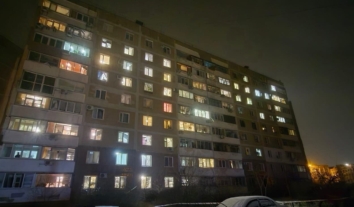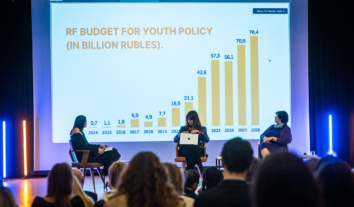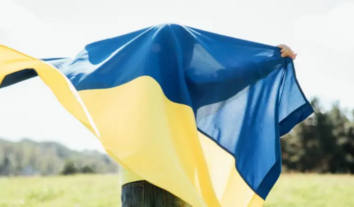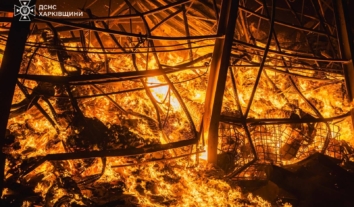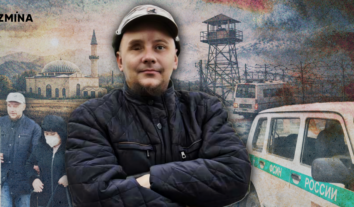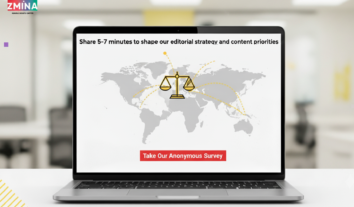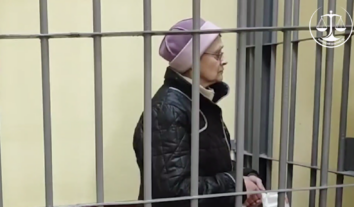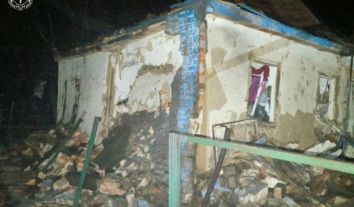The record from the personal computer is the main part of the materials in Semena case – said lawyer
Half of the files in the criminal case against the Crimean journalist Mykola Semena is a record of his activities on his personal computer which indicates constant surveillance and bugging by the security services.
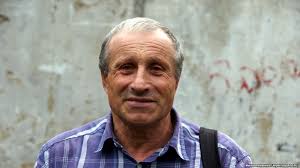 Andrey Sabinin, Semena’s lawyer, announced this today at the press conference “Crimean captives of Kremlin” – says a reporter of the Human Rights Information Centre.
Andrey Sabinin, Semena’s lawyer, announced this today at the press conference “Crimean captives of Kremlin” – says a reporter of the Human Rights Information Centre.
“You are sitting in front of the computer and working, while somebody is watching you. Even now when I communicate with him online they are watching. Semena is trying to work and he is always under control. Basically, half of the files in the case are de facto intellectual records of his work”, said Sabinin.
According to the lawyer due to the accusations from the Russian authorities he can be imprisoned.
Sabinin also noted that there are 15 similiar cases already open in Russia. In five cases sentences are already imposed and based on them some people were imprisoned.
In particular, he referred to the case of Darya Polyudova, a Kuban activist. In 2015 she was sentenced to two years in prison for “incitement to separatism and extremism” (Art. 280.1) in social networks for reposting a picture with text saying “Ethnic Ukrainians of Kuban want to join Ukraine”.
According to the lawyer, this article was included in the Criminal Code of Russia almost immediately after the annexation of Crimea by Russia.
At the same time Sabinin says that the case of Semena differs from the other cases.
“In other cases there were mainly appeals on the internet, social networks or at the public events. Semena made a comment to the mass media which is not even related to Russian Federation, its main office not even located in Ukraine. Still the article published on website came into view and is considered as one that may cause his imprisonment”, said Sabinin.
By his estimations the Semena case can be transferred to the court by the end of this year or, depending on the length of the holidays, until mid-January.
Sabinin noted that Semena, he can be sentenced for up to 5 years. However lawyers are still hoping that journalist will avoid the maximum penalty.
Herewith Sebenin stressed the importance to of the publicity for the fight with the prosecution of Semena.
“Russian courts do not care. They don’t take seriously the principle of the competiveness of sides. However, close attention of the press attracts the attention of the civil society. Another thing is that any public action in support of Semena is impossible in Russia. This means that anyone who participates in such public action might be accused and persecuted by the same article. At the same time this (the action support, publicity – ed.) is possible in Ukraine. And it gives some possibilities in the future. For example, it gives possibility to be released from the even with accusation and move to Galicia what Semena is dreaming about”, said Sabinin.
He reminded the case of political prisoner Afanasyev, who was convicted but later pardoned.
“That’s why publicity is important especially if these actions target Russian Ministry of Foreign Affairs”, sums up the lawyer.
As a reminder, massive searches took place, including in the houses of independent journalists who are suspected of collaboration with Krym.Realiyi in spring in Crimea. A case was opened with respect to the Radio Liberty’s reporter Mykola Semena on suspicion of calling for the violation of the territorial integrity of the Russian Federation. Russian investigation forbade him to leave the peninsula.
On August 23, his defense submitted a request to FSB to allow Semena to leave Crimea for medical treatment. Previously International and European Federation of Journalists, as well as the OSCE Representative on Freedom of Speech, also had requested to allow the journalist to get medical treatment in Kyiv.
Crimean department of FSB refused to satisfy the request of the journalist.
On November 28, Semena could not visit Brussels to receive the European Prize for the freedom of speech named after Pavlo Sheremet because of the ban on travel outside Crimea.

